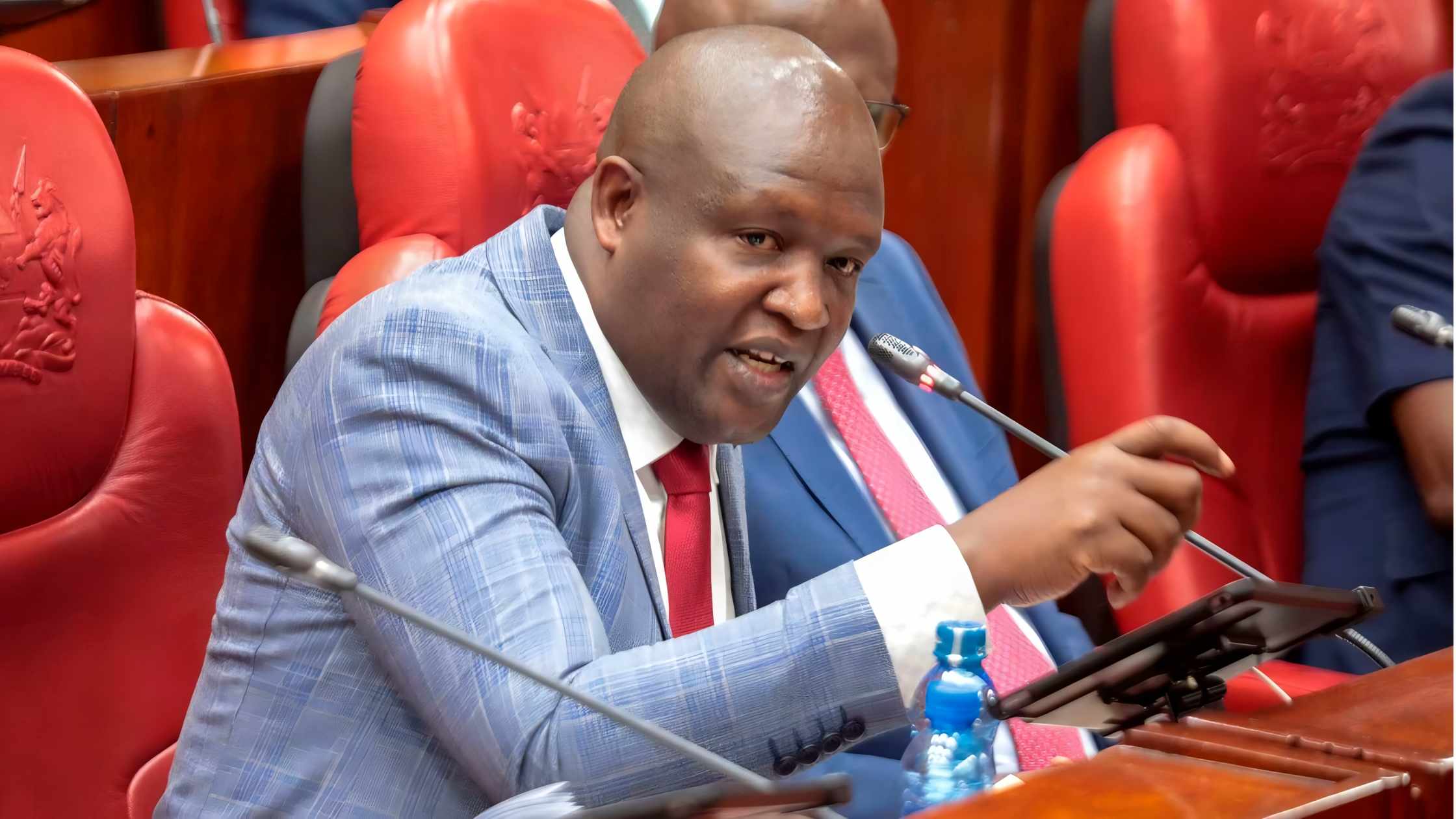Senate braces for legal clash as Governor Mutai faces impeachment

The County Assembly has enlisted 12 seasoned lawyers led by Elisha Ongoya, a prominent advocate who previously represented former Deputy President Rigathi Gachagua in his impeachment trial.
The stage is set for a high-stakes showdown in the Senate as Kericho Governor Eric Mutai faces an impeachment trial beginning Wednesday, August 27, 2025.
The full House will sit as a trial court to determine whether the Governor should be removed from office, with the County Assembly and the Governor each fielding heavyweight legal teams in a battle over his political survival.
The County Assembly has enlisted 12 seasoned lawyers led by Elisha Ongoya, a prominent advocate who previously represented former Deputy President Rigathi Gachagua in his impeachment trial.
Ongoya will be supported by Kimutai Bosek, Sharon Mibey, Elias Mutuma, Hillary Kiplangat, Brian Langat, Geoffrey Langat, Victor Kibet, Evans Kiplangat, Elvis Kipkorir, Joel Wakhungu, and Vincent Kipronoh. In addition, four legal officers—Brian Maingi, Ian Kiplangat, Mitchel Mutuma, and Japhet Koech—are part of the Assembly’s delegation.
Ongoya and Mutuma are well known in the Senate, having successfully defended former Meru Governor Kawira Mwangaza in two impeachment attempts. Ongoya also played a key role in the legal team that defeated the Building Bridges Initiative (BBI) in court.
The Assembly is banking on their expertise in impeachment cases to secure Mutai’s removal.
Governor Mutai has assembled a team of six lawyers led by Katwa Kigen, a seasoned advocate who once represented President William Ruto at the ICC.
Others in his defense team are Peter Wanyama, Rose Thiong’o, Doris Ng’eno, Joash Mitei, and Evanson Kirui. Mutai hopes the Senate will throw out his impeachment on the basis of preliminary objections challenging the legality and credibility of the Assembly’s actions.
The Governor argues that the Assembly flouted a conservatory order issued by the High Court in Kericho on August 14, 2025, barring debate or voting on his impeachment until an inter partes hearing scheduled for August 28.
Despite this directive, the Assembly proceeded with the vote on August 15. He has described the move as a blatant violation of judicial authority and the rule of law.
His petition to the Senate further claims that the impeachment process lacked constitutional grounding and was conducted through a flawed electronic voting system.
Proceedings will formally begin with the reading of the charges, after which Governor Mutai will enter a plea.
The County Assembly will present its evidence first, calling witnesses and tabling documents to support claims of gross violation of the Constitution, abuse of office, and gross misconduct.
Mutai’s defense team will then respond, presenting witnesses and evidence before senators debate the Motion and cast a decisive vote by county delegations on Friday, August 29.
The charges against Governor Mutai cover three main areas: financial irregularities, abuse of office, and gross misconduct.
According to charges read to the House last week by Speaker Amason Kingi, the County Assembly alleges that the Governor presided over financial mismanagement that drained public resources.
The Assembly estimates that Sh85.7 million was lost through fictitious payments for goods and services that were never supplied or were overpriced.
The alleged irregularities include maintenance of 15 residential houses that were never serviced, undelivered farm inputs such as soya beans and maize germ, and items procured at inflated costs—soda bottles at Sh500 each, tissue paper at Sh2,750 per bale, and hand towels at Sh3,600 apiece.
Payments worth Sh5.1 million were allegedly made to companies, including Mengro Products Limited and Hildama Construction, without supporting documents.
The Assembly also claims contractors were paid twice from retention accounts for projects completed more than five years ago.
It accuses Mutai of bypassing procurement rules, splitting contracts to avoid open tendering, sanctioning advance payments, and ignoring pending bills totaling Sh1.1 billion.
His management of major development funds is under scrutiny.
The Ad Hoc Committee on Alleged Fictitious Payments flagged irregularities in the National Agricultural Value Chain Development Project (NAVCDP), claiming that Sh351 million meant for farmers’ cooperatives across 30 wards was misused. Only 19 wards benefited, and supplies delivered were of poor quality with missing delivery notes.
Mutai is also accused of favouring his home ward of Chemosot under the Financing Locally-Led Climate Action (FLOCCA) Fund, with projects worth Sh21.7 million, while other wards were left out.
Additionally, funds raised for victims of the Londiani junction road tragedy, totaling more than Sh9 million, reportedly went missing.
On abuse of office, the Governor is accused of nepotism, including employing his brother as a revenue clerk and confirming the wife of his aide as a nurse over long-serving staff.
He is also said to have unlawfully appointed a County Attorney despite a substantive holder being in office—a move later nullified by the Employment and Labour Relations Court, which ordered him to pay Sh2 million in costs.
Mutai allegedly misled the public by advertising jobs for doctors, nurses, and ECDE teachers despite the county lacking funds for recruitment. He also faces claims of irregularly deploying health workers without consulting the County Public Service Board.
On gross misconduct, the Governor is accused of leading an unlawful invasion of private land in Kericho town shortly after taking office, demolishing a fence, and declaring it a county dumpsite without approval from the National Environment Management Authority, without gazettement, and in defiance of a court order.
The impeachment will be decided by the full Senate after Majority Leader Aaron Cheruiyot’s attempt to form a select committee collapsed when Minority Leader Stewart Madzayo declined to second the Motion, paving the way for the plenary trial.
